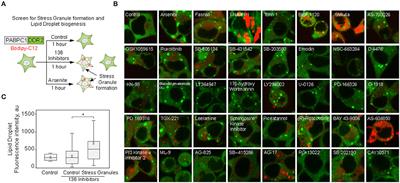EDITORIAL
Published on 16 Nov 2021
Editorial: The Dynamics of Stress Granules
doi 10.3389/fcell.2021.789678
- 2,213 views
- 2 citations
17k
Total downloads
81k
Total views and downloads
EDITORIAL
Published on 16 Nov 2021
ORIGINAL RESEARCH
Published on 08 Jun 2021

REVIEW
Published on 20 May 2021

MINI REVIEW
Published on 26 Apr 2021

ORIGINAL RESEARCH
Published on 16 Apr 2021

MINI REVIEW
Published on 25 Feb 2021

ORIGINAL RESEARCH
Published on 11 Feb 2021

ORIGINAL RESEARCH
Published on 11 Feb 2021

MINI REVIEW
Published on 14 Jan 2021
